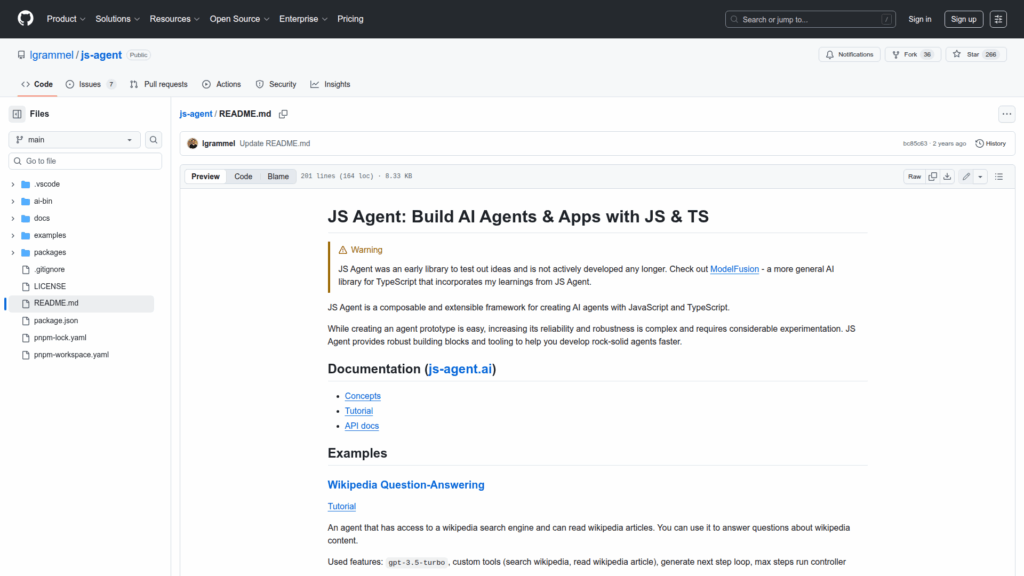js-agent
Basic Information
JS Agent is a composable and extensible framework for creating AI agents and apps using JavaScript and TypeScript. It was built to help developers move beyond quick prototypes by providing reusable building blocks, tooling and patterns that make agent behavior more reliable and robust. The repository contains an agent runtime, example agents, prompt templates, text utilities and an HTTP server to host and control agents. It targets developers who need typed, modular primitives for defining agents, actions and run properties and who want to experiment with planner and loop patterns such as generate-next-step and BabyAGI-style loops. The README notes the project is an early experiment and not actively developed, pointing to a successor project, but the code and documentation remain useful for learning and constructing production-oriented agent workflows.








